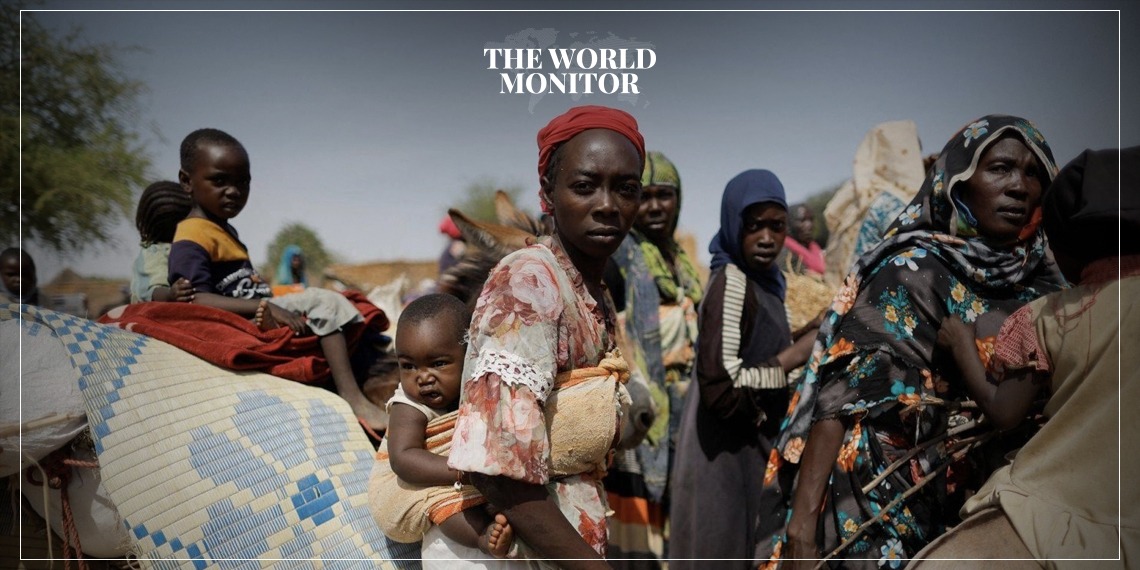A United Nations report released yesterday (Friday) revealed that between 10,000 and 15,000 people were killed in the city of Geneina in Sudan’s West Darfur region last year in ethnic violence. The attacks were carried out by the semi-military Rapid Support Forces and allied Arab militias. According to the report presented to the UN Security Council, independent UN sanctions monitors attributed the death toll in Geneina to intelligence sources and compared it to UN estimates that about 12,000 people were killed across Sudan since the outbreak of war on April 15, 2023, between the Sudanese army and the Rapid Support Forces.
The UN report states that about 500,000 people fled Sudan to eastern Chad, which is hundreds of kilometers south of Am Djarass. The monitors wrote that Geneina witnessed “intense violence” between April and June last year. They accused the Rapid Support Forces and their allies of targeting the African Masalit ethnic tribe in attacks that “could amount to war crimes and crimes against humanity.”
The Rapid Support Forces previously denied these allegations, stating that any soldiers found to be involved would face justice. The sanctions monitors’ annual report to the 15-member Security Council stated that the attacks were “planned, coordinated, and executed by the Rapid Support Forces and the allied Arab militias.”
Reuters news agency documented last year’s ethnically targeted violence in West Darfur. Survivors described horrific scenes of bloodshed in Geneina and on the 30-kilometer road from the city to the Chad border as people fled. The monitors’ report includes similar accounts, stating that from June 14 to 17, about 12,000 people fled Geneina on foot to Adré in Chad. The Masalit, who were the majority in Geneina, were forced to mass displacement due to these attacks.
The monitors reported that upon reaching checkpoints controlled by the Rapid Support Forces, men and women were separated, harassed, searched, robbed, and physically assaulted. They also stated that the Rapid Support Forces and allied militias fired indiscriminately at hundreds of people’s legs to prevent them from escaping. The report detailed that young men were particularly targeted and interrogated about their ethnic affiliation, with many being executed after brief proceedings if identified as Masalit. Women faced physical and sexual assault, and random gunfire resulted in the injury and death of women and children. All interviewees mentioned “many bodies along the road, including women, children, and young men.”
The monitors also reported “widespread sexual violence” linked to the conflict, committed by the Rapid Support Forces and allied militias.
The report concluded that the new firepower acquired by the Rapid Support Forces had a significant impact on the balance of power in Darfur and other areas of Sudan. Recently, the Rapid Support Forces have made military gains, including controlling Wad Madani, one of Sudan’s largest cities, and strengthening their grip on West Darfur.
In December, the United States officially determined that both parties to the conflict in Sudan had committed war crimes, and that the Rapid Support Forces and allied militias also committed crimes against humanity and ethnic cleansing. The war has left nearly half of Sudan’s 49 million population in need of aid, with over 7.5 million people displaced, making it the world’s largest displacement crisis. Hunger is also spreading.
The sanctions monitors told the Security Council that the excess of mediation tracks, entrenched positions of the warring parties, and competing regional interests mean that these peace efforts have yet to stop the war, achieve political settlement, or address the humanitarian crisis.






